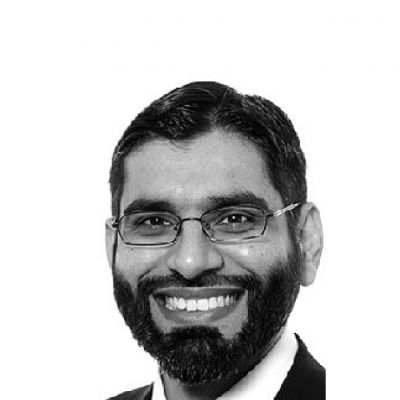Story
Better Business
Bush Fellows in the business sector are leading community change.

Since its inception in the mid-1950s, the Bush Fellowship program has helped more than 2,200 exceptional people sharpen their skills, expand their networks and take time to reflect on how to become even more effective leaders. The program has been intentional about supporting and connecting people from various sectors and different walks of life. As a result, some of the region’s most influential business leaders point to a Bush Fellowship when they talk about their personal and professional growth.
Take, for example, Peter Heegaard. When Heegaard received a Bush Fellowship in 1977 he already had nearly 20 years of experience working in the financial services industry. Working in investments with the Trust Group of Northwestern National Bank of Minneapolis, Heegaard was cognizant of the connection between banks and communities.
Heegaard used the Fellowship to develop his management skills. He also wanted to discover ways to bridge the yawning gap between banks and communities. A Master of Business Administration from the Tuck School of Business at Dartmouth College already under his belt, Heegaard returned to his alma mater for its executive education program. He also studied at the Aspen Institute in Washington, D.C.
Heegaard says the mid-career Fellowship was like a “booster shot” that not only kept him balanced in a harsh corporate environment, but also sparked a new chapter. With growing curiosity about community development and the role of financial services in that arena, Heegaard started his own urban education program, Urban Adventure.
Since 1997, Urban Adventure has recruited mid-level managers in the business sector to engage in a curriculum that shows the positive outcomes of investing in a weakened community. The crux of the program is getting financial professionals to see the potential return on investment. Now in its 19th year, Urban Adventure has engaged more than 400 executives of Twin Cities financial institutions in its programming.
“You take the bankers that had the most to gain by turning a depressed neighborhood around and show them how they could apply their skills,” he explains. “The philosophy is a healthy community creates healthy business, and healthy business creates healthy community.”
Heegaard designed Urban Adventure to be an experiential learning model because he believes that’s how people learn best. Through simulations and debate, participants engage each other and challenge themselves to solve real, systemic issues such as bringing back a housing development gone awry or surviving a poverty simulation in which they are given $35,000 on which to live. Though they don’t face these challenges in reality, Urban Adventure gives these business leaders the opportunity to share ideas and build passion for overcoming the obstacles facing many members in the community.
Heegaard has used this passion for improving communities in other ways as well. He is the author of three books that further explore the potential of individuals and communities when they have the necessary support. Turnabout, published last year, looks at the lives of 14 individuals who moved from dependency to self-sufficiency with the help of community programs and organizations.

Peter Heegaard • 1977 Bush Fellow
Peter Heegaard’s career is built on community development in the Twin Cities. With an extensive background in financial services, he is passionate about building up weakened communities through investments. He shares this passion through Urban Adventure, an education program for financial professionals. Now in its 19th year, the program has engaged over 400 participants since its inception.
Heegaard’s work has led him to neighborhoods throughout the Twin Cities, revitalizing communities by investing in people. Similarly, 1988 Bush Fellow and former Board member Esperanza Guerrero-Anderson has used her expertise in financial investment and mentorship to help others build successful businesses.
Guerrero-Anderson used the Bush funds to attend the Yale School of Management for its executive program in 1989, furthering her management skills.
She says the Fellowship allowed her to take a step back from her role as president of the Metropolitan Economic Development Association (MEDA), a nonprofit that provides consultant services to entrepreneurs of color and minority-owned companies. “It was a turning point — an absolutely wonderful opportunity to go and hear what other people were doing in the country,” Guerrero-Anderson says.
Returning from a month-long stint at the university, she started down a new business path in venture capital funds. Guerrero-Anderson launched Milestone Growth Fund in 1990 and served as its CEO for the next 16 years. Like MEDA, the Minneapolis-based company targeted minority entrepreneurs, helping them get their businesses off the ground with investment dollars. Many of these companies are still in operation today.
Guerrero-Anderson’s support of other businesspeople has not been limited to financial investments. She also spends a considerable amount of time consulting business owners on managing, presenting themselves well and more. She describes it as seeing the diamonds in people — everyone has special skills that are unique to them. It’s just a matter of bringing them to the surface.
Guerrero-Anderson’s life of consulting began when she was young, working in her native Nicaragua. She was only 22 the first time she developed a mentoring relationship with someone. “It’s part of my chemistry,” she says, explaining how she used her professional network to help a third grade teacher she had befriended attain a higher paying position at the local private college.
Perhaps the pinnacle of a life spent sharing her expertise with other people in the business sector was the establishment of her consulting company, Guerrero-Anderson, Inc., in 2008. She coaches professional executives through the company based in Edina, Minn.
Over the years, Guerrero-Anderson has invested time and money in countless individuals and, by extension, their companies. And she is the first to emphasize how the Bush Fellowship equipped her to start that ripple effect.
Guerrero-Anderson says the influence she’s had in the business community was sparked by her fellowship.

Esperanza Guerrero-Anderson • 1988 Bush Fellow
Esperanza Guerrero-Anderson says her biggest passion in life is mentoring other professionals. She served as president of the Metropolitan Economic Development Association (MEDA), a consultant group that focuses on minority entrepreneurs; launched her own venture capital fund, Milestone Growth Fund; and started her consulting company, Guerrero-Anderson, Inc., which allows her to meet with and help develop professionals.
Fellowships Fuel STEM Growth
The combined impact of Bush Fellows throughout the region extends to all
disciplines and industries. While Guerrero-Anderson and Heegaard’s work has aimed at investing in Twin Cities businesspeople, 2012 Bush Fellow Kalc Vang has been busy developing a system that fosters a well-prepared workforce for science, technology, engineering and mathematics (STEM) jobs. Thanks to the Bush Fellowship, Vang’s dream of educating Twin Cities Hmong students in these fields became a reality.
Vang currently works at 3M, the same company Bush Foundation founder Archibald Bush helped lead for decades. With an extensive background in the sciences and a doctorate in coatings and polymeric materials, Vang has built a successful career within the STEM disciplines. Not only does he lead as a project manager at 3M, Vang is also dedicated to sharing his knowledge and passion for these fields with the next generation of his community.
At 3M Vang has an insider’s look into an industry and its dire need for STEM-educated students to rise up and find their places in the workforce. Through the Bush Fellowship, Vang worked with Hmong students in middle and high schools for the past four years, educating them about STEM fields. In the future Vang hopes to join his work with an existing nonprofit or build his own organization to involve more Hmong professionals and smooth the path for Hmong students interested in STEM-related careers.
“I thought, ‘How can I bring this to my community, particularly to girls and boys that are interested in going into these fields?’ ” Vang explains. “That’s what led me to the Bush Foundation.”
The Twin Cities metro area is home to more than 80,000 Hmong residents. In 2015 Hmong in Minnesota celebrated their community’s substantial growth and 40th anniversary since immigrating to the state. Though Hmong is considered one of the largest Asian communities in the area, the number of Hmong students entering STEM fields is lacking. Vang says this could be due to language barriers, familial support or a lack of mentoring opportunities.
Vang partnered with Saint Paul’s Hmong College Prep Academy to bridge the gap between STEM education and Hmong students. Speaking to classes about STEM-related careers, helping kids think about what they’d like to do when they grow up, and meeting with parents to explain the importance of these disciplines were all mainstays of his fellowship.
In addition to making STEM education more accessible for Hmong students, Vang’s fellowship focused on learning how to engage parents in dialogue about what their kids wanted to do after high school. Rather than isolating this work to the students, Vang wanted to engage the entire Hmong community, and that meant educating the parents and families. Fluent in his native Hmong language, Vang was able to communicate with parents that didn’t speak English, which was critical to the success of the program.
By engaging Hmong students and their families, Vang was able to ascertain the reasons for their lack of representation in STEM education. He found that the issue didn’t lie in a lack of interest in these topics — students were excited about STEM education. Rather, they simply didn’t explore the prospect of going into STEM careers with their families because those fields weren’t seen as an option. His hope is that the exposure to these fields will help many Hmong students choose careers they wouldn’t have otherwise known about.
“If they’re not exposed to it and they don’t really have a sense of what they want to do, they don’t take those STEM classes and it doesn’t drive them toward their full potential,” Vang explains. “My goal was to start building some of those platforms.”

Kalc Vang • 2012 Bush Fellow
Currently an employee at 3M, Kalc Vang is passionate about sharing science, technology, engineering and math (STEM) education with students in the Hmong community. Through his fellowship, he worked with students at the Hmong College Prep Academy in Saint Paul, Minn. He hopes to increase the number of Hmong professionals working in STEM fields.
Bush Fellows Affect Change
A common sentiment among Bush Fellows is that the program helps them accomplish goals they would not have been able to otherwise. Along with this comes more responsibility to follow through and lead change. Kashif Saroya, a 2015 Bush Fellow, says the support he has received from the Bush Foundation has pushed him to discover his true potential.
Encouraged by his wife, Lori Saroya, who received a Bush Fellowship the year prior, he sought out the Bush Foundation to support his mission of developing himself into an executive leader within the business sector. The Fellowship enables him to pursue a Master of Business Administration at the University of Minnesota Carlson School of Management.
With several years of leadership roles under his belt, Saroya, a Muslim man from Pakistan, wants to elevate himself into executive positions to diversify the business sector and encourage a positive image of Muslim people. “The importance of the Fellowship is to connect it with the diversity within the corporate world,” he says, adding that companies often feel they have accomplished diversity by sending their employees to a handful of training sessions.
“I feel it’s important not to just take those trainings, but also to grow those minority individuals who qualify and are well suited for these positions,” Saroya says. Saroya cites a disconcerting statistic as his inspiration for returning to school and grooming himself for leadership. According to a 2014 Fortune article, only 23 Fortune 500 CEOs nationwide were people of color. That adds up to just 4 percent. The Bush Fellow is looking to increase those numbers.
Another key element of the Bush Fellowship for Saroya is networking. Meeting more people and learning about their jobs, companies and experiences is just as important as increasing his knowledge of the corporate sector and business leadership. Taking classes through the Carlson School of Management’s MBA program, which he began in July 2015, has allowed Saroya to meet more people and learn from his classmates.
Saroya oversees product development for Target Corp. Between his full-time job, the Bush Fellowship, the master’s program and spending time with his wife and 5-year-old son, Saroya admits that it has been a challenge, but the Bush Fellowship teaches life balance. “I feel it’s worth it,” he says. “The change that you want to see and the things you want to make a difference in don’t come for free; it doesn’t come easy.”

Kashif Saroya • 2015 Bush Fellow
Diversity in executive leadership is lacking throughout the country, and Kashif Saroya wants to change that. The Bush Fellowship allows him to earn a Master of Business Administration at the University of Minnesota Carlson School of Management, furthering his education and leadership skills. A Muslim man from Pakistan, Saroya wants to become a leading executive to diversify the business sector and reinforce and encourage a positive image of Muslim people.
Continue reading
-

Story
Initiating changemakers
How the Initiators Fellowship supports business enterprises that prioritize social and environmental good throughout Greater Minnesota.
-

Note from Jen
Note from Jen: Acknowledging and learning from the boarding school era
The Bush Foundation was invited to the gathering at Gila River...
-

News
Meet the 2024 Bush Prize winners!
Bush Prize winners are doing big things in partnership with their communities.